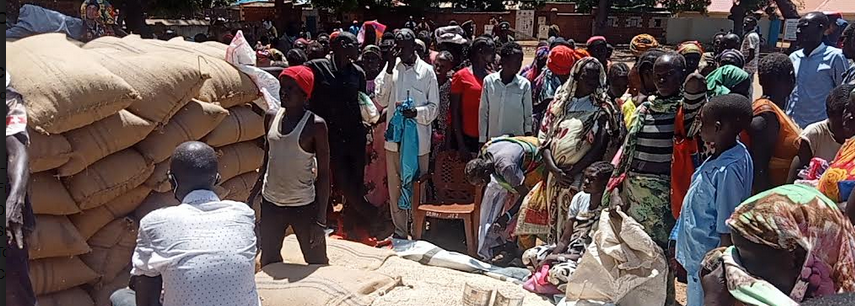Citizens in Northern Bahr el Ghazal State have applauded the State government for availing sorghum at affordable prices compared to the current market rate.
The current market retail price for 3.5 Kg of sorghum or Dura is SSP 1,600 while the state government sells the same quantity at SSP 550.
Some of the Aweil town residents who spoke to Radio Tamazuj Wednesday at a government retail point said they were ecstatic because the state authorities had delivered huge quantities of the grain at reasonable prices.
Amuna Garang Deng, a young lady who was buying government-subsidized sorghum at a location near the state information and communication ministry, said she was happy about the government initiative and could now afford food.
“I am very happy now because in the past if someone had SSP 1,000, he or she could not afford to feed themselves. If you have SSP 2,000, you could only buy a little flour and use it without broth,” she said. “I have now bought 7 kg of sorghum at 1,100 SSP. That is SSP 550 for 3.5 Kg. I thank the government for rescuing us from the hardships we have been facing. In the local markets, 3.5 kg of Dura costs SSP 1,600 SSP.”
Another beneficiary, Karlo Malek, said the government’s move to sell cheap grain to the people had put him in a good mood.
“My mood is so good today (Wednesday) because there was serious hunger, but the government has provided Dura at SSP 550 for 3.5 Kg. We are now comfortable and we wish the government could carry on with the initiative every year,” Malek said.
Meanwhile, William Anyuon Kuol, the state information, and communication minister confirmed that a total of 27 trucks delivered government-subsidized sorghum to the state from Sudan on Tuesday and said that the grain was distributed to retail points.
“We yesterday received the first consignment of 27 vehicles loaded with food items, the sorghum. And today (Wednesday) we immediately formed a committee and we started taking it to centers so that the people can access it at affordable prices,” he said.
Anyuon has also added that more consignments of grain are expected from Sudan in the next few weeks but urged the locals to embrace agriculture and not to rely on government-subsidized food.




